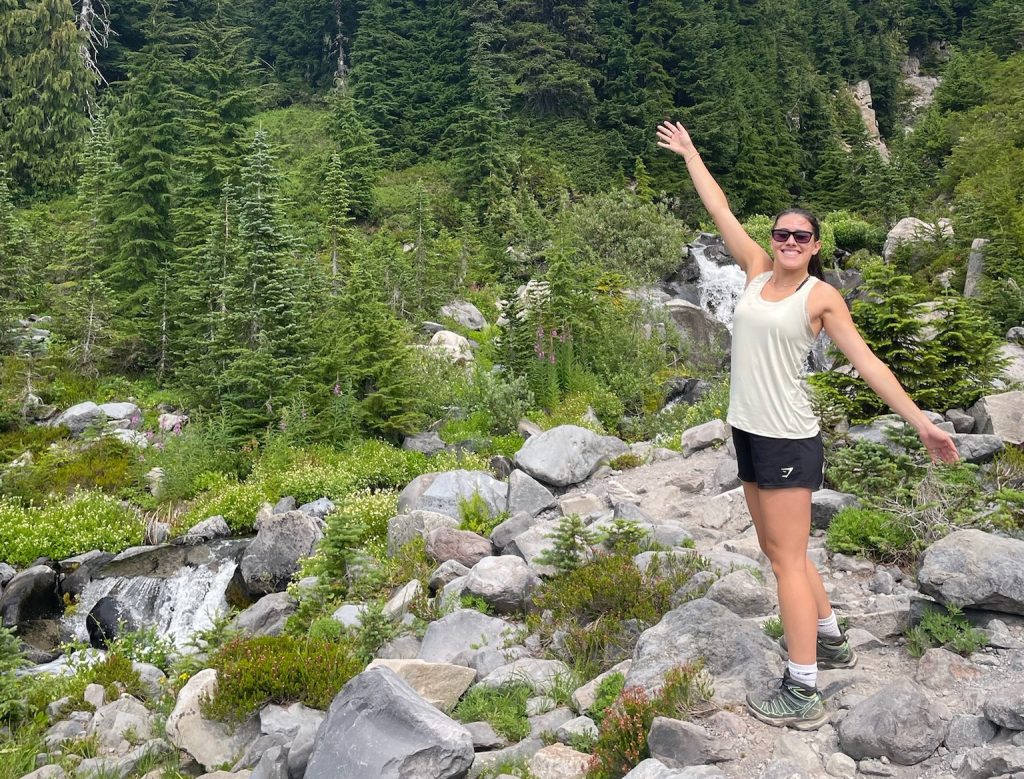The Pacific Northwest
Cooperative Ecosystem Studies Unit
The PNW CESU is a partnership for research, technical assistance, and education to enhance understanding and management of natural and cultural resources. Established in 2000 as a cooperative venture, the PNW CESU consists of 13 federal agencies dedicated to natural and cultural resource management and 19 leading academic institutions, five non-profits, one non-governmental organization, and one state agency.
The PNW CESU is a member of the National CESU Network which consists of 17 regional Cooperative Ecosystem Studies Units, each representing a distinct biogeographic region of the United States, with all regions connected through the national network. The overarching goal of the CESU Network is to improve the scientific base for managing federal lands by providing resource managers with high-quality scientific research, technical assistance, and education.
The University of Washington’s School of Environmental and Forest Sciences (SEFS) serves as host to the PNW CESU, with SEFS Director Dan Brown and the National Park Service’s Ben Becker serving as Co-Leaders, with Kylie Baker as the Science Communication Specialist.
Funding Opportunities
- U.S. Army Corps of Engineers Funding Opportunity: Oyster Pads and Wave Trip at Long Bird Island, Houston Ship Channel
- Glacier National Park Conservancy – Jerry O’Neal Student Research Fellowship
For more funding opportunities see the Funding Opportunities page
Co-Leaders Corner

We are pleased to welcome you to the Pacific Northwest Cooperative Ecosystem Studies Unit (PNW CESU)!
Together, Dan and Ben are committed to ensuring the
PNW CESU continues to advance science and support robust ecosystem studies throughout the Pacific Northwest by fostering collaboration between funders, researchers, and land managers.
Benefits
Collaboration is facilitated by a streamlined task agreement process, and a 17.5% indirect cost rate for most agencies.
The federal agencies benefit from access to a wide range of scientific and project management services from universities and other organizations, and a focus on multidisciplinary problem-solving. They benefit from the expert knowledge and research support that furthers the federal land management goals.
The partners benefit by receiving federal funding that might only be available through the CESU. This funding supports research and provides opportunities for faculty to fund their students and opportunities for graduate students to research, participate in projects and internships, and even gain employment.
Students benefit from the access to federal funding, access to professional experts, field experience, and even opportunities to be hired to work on projects.
Key Issues in the Pacific Northwest Biogeographic Region
- Species and habitats at risk
- Landscape restoration and reclamation
- Developing ecological monitoring protocols
- Pacific Northwest Native cultural resource documentation and knowledge preservation
- Sustainable resource production
- Conserving biodiversity
- Human dimensions in public lands management, including urban and rural issues
- Influence of hydropower projects on endangered species and the removal of migration barriers
- Wind and wave energy development and analysis
- Ecological disturbance and fire
- Climate change
- Invasive species
See the project database for data on individual PNW-CESU projects
2001 – 2024 Statistics
PNW CESU Student Project Highlight

Lindsey Skidmore, a dedicated research assistant and recent graduate from the University of Washington, is working closely with Ecologist Beth Fallon from Mount Rainier National Park on a critical project to protect Mt. Rainier’s fragile ecosystems. Under the guidance of University of Washington researchers Dr. Meghan Halabisky and Dr. Monika Moskal, Lindsey maps social trails in Paradise, Mt. Rainier, using advanced remote sensing techniques. This project, “Remote Sensing Assessments of Social Trails Fragmenting Subalpine Paradise Meadows” (Project ID: P23AC01208), is funded through the PNW CESU in collaboration with the National Park Service.
Lindsey shared the progress and findings of their project at the 2024 PNW CESU & Great Basin CESU Annual Meeting, showcasing the innovative use of high-resolution imagery and machine learning to detect and predict social trails. As a summer intern with the NPS through Scientists in Parks, Lindsey continues to refine the project by collecting additional field data and improving the predictive model. Her work not only contributes to the goal of protecting Mt. Rainier’s ecosystems but also advances the field of environmental remote sensing. We eagerly anticipate seeing how Lindsey’s research will influence future conservation strategies and inspire other young scientists in their efforts to safeguard our natural world.
Learn more about their project here.
PNW CESU welcomes Earth Economics
The PNW CESU is excited to welcome our 26th partner!
Earth Economics is a non-partisan nonprofit organization with over 25 years of experience applying ecological economics. They quantify the economic value of natural systems, using a proprietary database of over 10,000 values. They provide economic analyses that support their clients’ conservation, restoration, and resilience planning efforts. Earth Economics contributes valuable insights to public agencies, tribal governments, community partners, and others, helping inform policies that balance ecological health with economic development throughout the United States and internationally.
Glen Delaney, Director of Partnerships, will serve as the Technical and Administrative Representative for the PNW CESU.
Learn more about Earth Economics.
